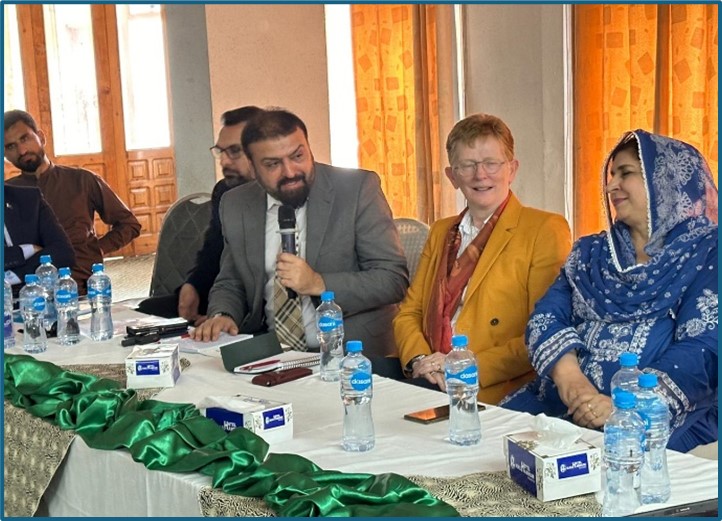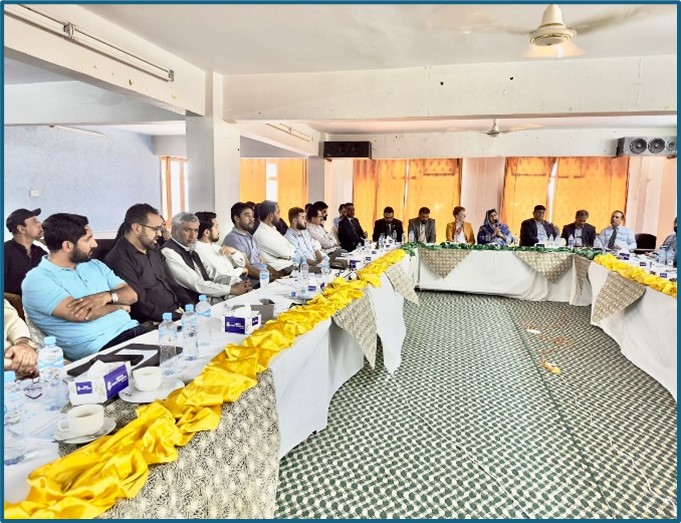
The national laboratory system is one of the important technical areas of International Health Regulations (IHR) under its ‘Detect’ components. During the COVID-19 pandemic, substantial work was undertaken to enhance the capacity of existing as well newly identified laboratories, within the expanded laboratory network. The Joint External Evaluation (JEE) in 2023 showed that Pakistan had developed capacity for specimen referral and transport system, and laboratory testing capacity modalities. It identified capacity for national laboratory quality system and effective national diagnostic network as limited.

Picture 1: Head of IHR-SP UKHSA Dr Anne Wilson UKHSA along with Government Officials from federal and regional health department
One of the recommendations of the 2023 JEE was to establish a structured laboratory network to expand the capacity of laboratories to test for all priority pathogens, to strengthen national laboratory system for specimen collection and referral mechanism, and its integration at all levels. Laboratory is an integral part of Integrated Disease Surveillance and Response (IDSR) System therefore the process for establishing a formal IDSR laboratory network was initiated with the consultation of National focal point, Public Health Laboratories. On 1 August 2024 a preliminary meeting was convened in Skardu district, Gilgit Baltistan (GB) to discuss the implementation process and secure support of the regional health department. The meeting was co-chaired by the Head of IHR-SP UKHSA, the Chief Executive Officer National Institute of Health (NIH) and the Director General (DG) Health GB. In attendance were senior officials from Ministry of National Health Services Regulation and Coordination (MoNHSR&C), Centre for Disease Control (CDC)-NIH. The meeting was also attended by the UK Health Security Agency (UKHSA) IHR-S Senior Leadership Team during their visit as this is a priority area for IHR-SP in Pakistan.
GB was selected for pilot implementation of the laboratory network as it is a small administrative unit of the country, compared to the other four major provinces. The meeting brought together all relevant stakeholders from federal and regional health department. The primary objective was to raise awareness among stakeholders about the importance of a laboratory network for early detection and response in strengthening national and Global Health Security (GHS). During the meeting, an outline of the five-year roadmap for the phased approach for the establishment of laboratory network was presented including the need, scope, proposed structure and integration of laboratories. The facilitators outlined the successes and challenges faced during IDSR implementation and reiterated strengthening the system by integrating the laboratory component within IDSR. They highlighted the importance of lab confirmed cases in indicator-based surveillance to accurately show the burden of disease in Pakistan.

Picture 2: Discussion on IDSR Lab Network five-year Road map
The DG Health GB concluded the meeting with a strong commitment from the health department to achieve laboratory integration within IDSR and a call for assistance from the NIH and UKHSA IHR-SP. The NIH and UKHSA IHR-SP pledged continuous support for translating the action plan to integrate surveillance with laboratory network.